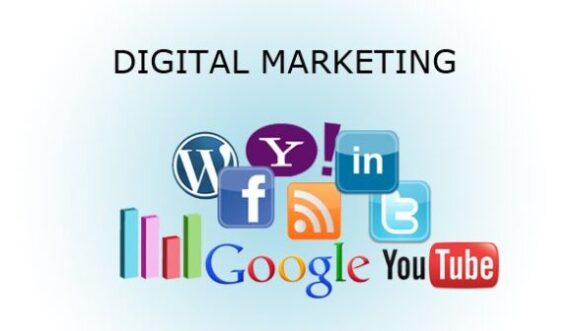
Digital Marketing Cloud
Introduction
In the rapidly evolving landscape of modern business, the fusion of digital marketing strategies with cloud technology has emerged as a transformative force, reshaping the way businesses connect with consumers, drive growth, and stay competitive. This comprehensive guide explores the importance of digital marketing cloud solutions in the United States, examining how businesses can leverage these technologies to enhance their marketing efforts, unlock new opportunities, and achieve sustainable success.
Section 1: Understanding Digital Marketing Cloud
1.1 Defining Digital Marketing Cloud
Digital marketing cloud refers to the integration of cloud computing technology with digital marketing strategies and tools. It encompasses a wide range of cloud-based platforms, services, and solutions designed to streamline and optimize various aspects of the digital marketing process, including campaign management, data analytics, customer engagement, and more.
1.2 Key Components of Digital Marketing Cloud
- Cloud-based Marketing Platforms: These platforms provide businesses with centralized tools for planning, executing, and analyzing digital marketing campaigns. Examples include marketing automation platforms, customer relationship management (CRM) systems, and email marketing software.
- Data Analytics and Insights: Cloud-based analytics tools leverage big data and machine learning algorithms to provide businesses with actionable insights into customer behavior, preferences, and trends. These insights enable businesses to make informed decisions and optimize their marketing strategies for better results.
- Content Management Systems (CMS): Cloud-based CMS platforms enable businesses to create, manage, and distribute digital content across various channels, including websites, social media, and mobile apps. These platforms facilitate content personalization and customization to enhance the customer experience.
- Customer Engagement Solutions: Cloud-based customer engagement solutions, such as chatbots, social media monitoring tools, and personalized messaging platforms, enable businesses to interact with customers in real-time, providing personalized support and driving engagement.
Section 2: The Importance of Digital Marketing Cloud
2.1 Scalability and Flexibility
One of the primary advantages of digital marketing cloud solutions is their scalability and flexibility. Cloud-based platforms and services allow businesses to scale resources up or down based on demand, ensuring optimal performance and cost-efficiency. This scalability is particularly beneficial for businesses in the United States, where market dynamics can change rapidly, requiring agile responses to meet evolving customer needs and preferences.
2.2 Enhanced Collaboration and Accessibility
Digital marketing cloud solutions facilitate enhanced collaboration among marketing teams, regardless of their geographical locations. Cloud-based platforms enable real-time sharing of data, assets, and insights, fostering seamless collaboration and alignment across departments. Additionally, cloud-based solutions offer accessibility from any location with an internet connection, enabling remote teams to work together efficiently and effectively.
2.3 Data-driven Insights and Personalization
The integration of digital marketing with cloud technology unlocks the power of data-driven insights and personalization. Cloud-based analytics platforms leverage advanced algorithms to analyze vast amounts of data and generate actionable insights into customer behavior, preferences, and trends. Armed with this information, businesses can create personalized marketing campaigns tailored to individual customer needs, driving engagement, loyalty, and conversions.
2.4 Cost-effectiveness and Efficiency
Digital marketing cloud solutions offer cost-effective alternatives to traditional marketing methods, allowing businesses to achieve more with fewer resources. By leveraging cloud-based platforms and services, businesses can avoid hefty upfront investments in hardware, software, and infrastructure. Instead, they can pay for what they use on a subscription or pay-as-you-go basis, reducing overall IT costs and improving operational efficiency.
2.5 Security and Compliance
Security and compliance are top priorities for businesses operating in the digital realm, especially in the United States, where data privacy regulations are stringent. Digital marketing cloud solutions prioritize security and compliance, providing businesses with robust measures to safeguard sensitive customer data and ensure regulatory compliance. Leading cloud providers implement encryption, authentication, and access controls to protect data from unauthorized access or breaches.
Section 3: Leveraging Digital Marketing Cloud for Business Success
3.1 Optimizing Campaign Management
Digital marketing cloud solutions streamline campaign management processes, enabling businesses to plan, execute, and analyze marketing campaigns more effectively. Cloud-based platforms offer features such as automated workflows, A/B testing, and real-time analytics, allowing businesses to optimize campaign performance, identify trends, and make data-driven decisions to drive better results.
3.2 Enhancing Customer Engagement
Cloud-based customer engagement solutions empower businesses to interact with customers in personalized and meaningful ways. Chatbots, social media monitoring tools, and personalized messaging platforms enable businesses to provide timely support, address customer inquiries, and deliver relevant content based on individual preferences. This personalized approach to customer engagement fosters stronger relationships, builds brand loyalty, and drives repeat business.
3.3 Improving Data Analytics and Insights
Digital marketing solutions revolutionize data analytics and insights, providing businesses with unprecedented visibility into customer behavior and market trends. Cloud-based analytics platforms leverage advanced algorithms and machine learning techniques to analyze vast amounts of data in real-time, uncovering actionable insights and opportunities for optimization. By harnessing the power of data-driven decision-making, businesses can refine their marketing strategies, target the right audiences, and maximize ROI.
3.4 Driving Content Personalization
Content personalization is key to delivering relevant and engaging experiences to customers across digital channels. Cloud-based CMS platforms enable businesses to create, manage, and distribute personalized content tailored to individual preferences and behaviors. By leveraging data analytics and insights, businesses can dynamically adjust content based on factors such as demographics, browsing history, and past interactions, ensuring a consistent and cohesive customer experience across touchpoints.
3.5 Maximizing ROI and Business Growth
Ultimately, the goal of marketing cloud solutions is to maximize ROI and drive sustainable business growth. By optimizing campaign management, enhancing customer engagement, improving data analytics, and driving content personalization, businesses can achieve greater efficiency, effectiveness, and impact with their marketing efforts. This, in turn, leads to increased customer acquisition, retention, and revenue generation, driving long-term success and competitive advantage in the market.
Conclusion
In conclusion, digital marketing cloud solutions play a pivotal role in enhancing business strategies and driving success in the United States. From scalability and flexibility to enhanced collaboration, data-driven insights, and personalized customer engagement, the benefits of leveraging marketing cloud solutions are manifold. By embracing these technologies and harnessing their power, businesses can unlock new opportunities, optimize marketing performance, and achieve sustainable growth in today’s competitive digital landscape.
Frequently Asked Questions (FAQs) about Digital Marketing Cloud
Q1: What is digital marketing cloud? A1: Digital marketing refers to the integration of cloud computing technology with digital marketing strategies and tools. It encompasses a wide range of cloud-based platforms, services, and solutions designed to streamline and optimize various aspects of the digital marketing process, including campaign management, data analytics, customer engagement, and more.
Q2: How does digital marketing cloud benefit businesses?
Digital marketing cloud offers several benefits for businesses. Including scalability and flexibility, enhanced collaboration and accessibility. Data-driven insights and personalization, cost-effectiveness and efficiency, and security and compliance. These benefits enable businesses to optimize their marketing efforts, reach wider audiences, and drive sustainable growth.
Q3: What are some key components of marketing cloud?
Some key components of marketing cloud include cloud-based marketing platforms, data analytics and insights tools. Content management systems (CMS), customer engagement solutions, and security and compliance measures. These components work together to streamline and optimize various aspects of the digital marketing process.
Q4: How can businesses leverage marketing cloud for success?
Businesses can leverage marketing cloud solutions to optimize campaign management. Enhance customer engagement, improve data analytics and insights, drive content personalization, and maximize ROI and business growth. By embracing these technologies and harnessing their power, businesses can achieve greater efficiency, effectiveness, and impact with their marketing efforts.
Q5: What are some examples of marketing cloud solutions?
Some examples of marketing cloud solutions include marketing automation platforms (e.g., HubSpot, Marketo). Customer relationship management (CRM) systems (e.g., Salesforce, Microsoft Dynamics). Cloud-based analytics platforms (e.g., Google Analytics, Adobe Analytics), content management systems (e.g., WordPress, Drupal). And cloud-based customer engagement solutions (e.g., chatbots, social media monitoring tools).
Q6: How can businesses ensure data security and compliance when using digital marketing cloud solutions?
Businesses can ensure data security and compliance by partnering with reputable cloud service providers that prioritize security measures. Such as encryption, authentication, and access controls. Additionally, businesses should implement robust data governance policies. And procedures to safeguard sensitive customer data and ensure compliance with relevant regulations, such as GDPR and CCPA.
Q7: Is marketing cloud suitable for businesses of all sizes?
Yes, marketing cloud solutions are suitable for businesses of all sizes. From small startups to large enterprises. Cloud-based platforms and services offer scalability and flexibility. Allowing businesses to scale resources up or down based on demand and budget constraints. This democratization of technology enables businesses of all sizes. To leverage marketing cloud solutions to optimize their marketing efforts and drive success.
Recent Posts
Water Damage Extraction Guide
Electric Heater Fireplace Tips
Best Living Room Paint Colors
All Categories
- Agriculture
- Apps
- Asian Games
- Auto
- Banking
- Beauty
- Blog
- Commonwealth Games
- Cricket
- Cricket
- Cryptocurrency
- Economy
- Education
- Fashion
- FIFA World Cup
- FIH Mens Hockey World Cup
- Fitness Zone
- Football News
- Gadgets
- Health
- Industry
- Interviews
- IPL
- Job & Feed
- Life Style
- Markets
- News
- News
- Other Sports News
- Politics
- Restaurant
- Sports
- Stock Market News
- Tech News
- Tech Reviews
- Technology
- Technology
- Top Stories
- Tours & Travel
- Travel
- Uncategorized
- World
- World Cup




